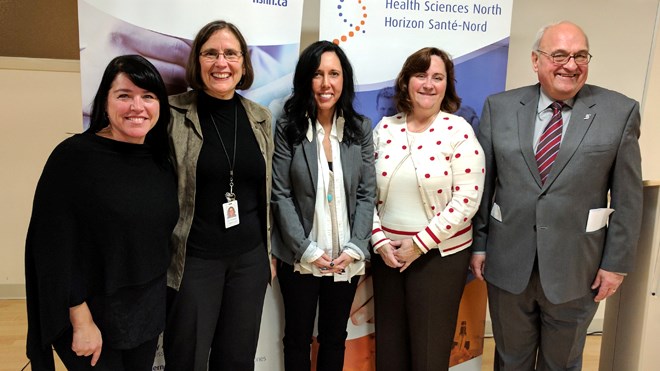Indigenous people in Canada are less likely than the general population to have a family physician, and often only go to a hospital if they are extremely ill.
The Health Sciences North Research Institutes newest researcher plans to help close the health-care gap for Indigenous communities with her research in the Sudbury region.
The hospital announced Thursday it has appointed Dr. Carrie Bourassa as the chair of Northern and Indigenous Health at the Health Sciences North Research Institute.
Bourassa is an Indigenous community-based researcher from Regina, Saskatchewan specializing in working with Indigenous communities to examine culturally safe health care practices.
Her current research projects include culturally safe care in health service delivery; end-of-life care with Indigenous people; dementia among Indigenous people; HIV and AIDS among Indigenous women, Indigenous ethics, Indigenous water co-governance, and Indigenous women’s health.
Dr. Janet McElhaney, the HSN Research Institute's scientific director and vice-president of research, said it was important to have an Indigenous person take the lead on local Indigenous health research.
Bourassa will bring her Cultural Safety Evaluation and Training Lab to help make the health-care system more welcoming for Indigenous communities.
“If Indigenous people do not feel welcome and well-served by our health care, the health inequities that are happening will never change,” McElhaney said.
Bourassa said her approach is to meet with Indigenous communities and listen closely to what they have to say, and what their needs are.
“Our communities are our bosses,” she said. “Communities are the experts. They know what they need and what the issues are.”
In her lab, she uses a mentorship model where a person's title is less important than the ideas and input they bring to the table.
“Titles don't really matter in my lab, including for me,” she said.
That approach, she said, helps make her students and research assistants more confident to share their ideas and even pursue their own research.
